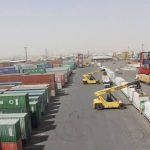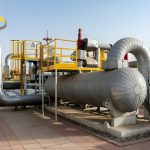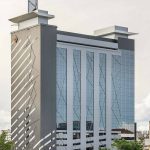General
Lagos Unveils Dates for Decontamination of Offices, House of Assembly, Others
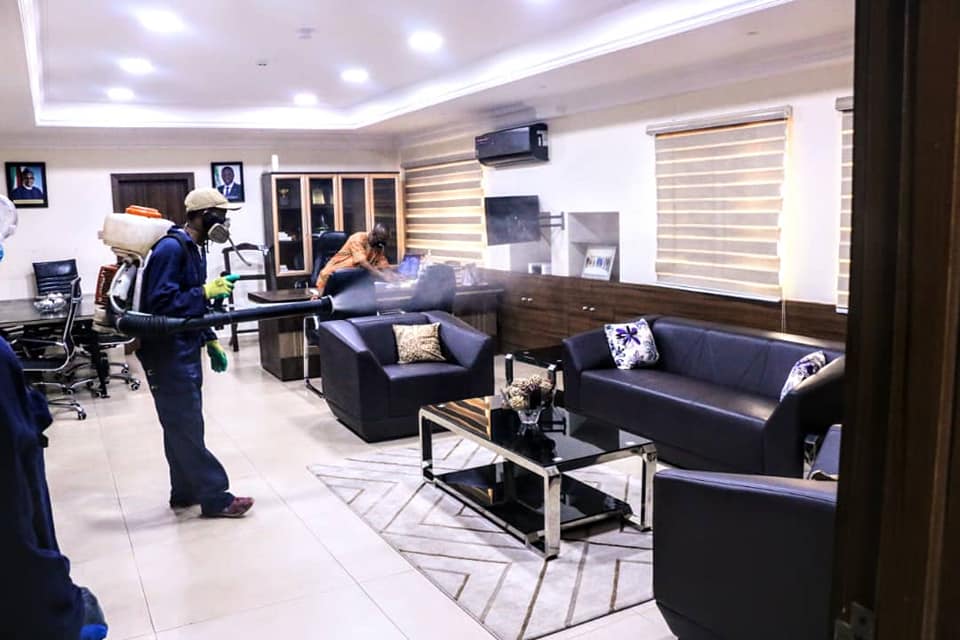
By Modupe Gbadeyanka
The Lagos State government is taking no chances and it is doing everything within its powers to curtail the spread of the second wave of COVID-19 in the metropolis.
On Saturday, it announced the extension of the work-from-home directive to workers on its payroll on Grade 14 below till Monday, February 1, 2021, and during this period, it is decontaminating the offices to make them safe for workers when they fully resume.
For more than two weeks, the state government under the leadership of Mr Babajide Sanwo-Olu will fumigate offices in the State Secretariat Complex in Alausa, Ikeja and other others across the state.
According to a statement signed by the Permanent Secretary, Office of Environmental Services, Ministry of the Environment and Water Resources, Mrs Belinda Odeneye, the exercise had become necessary to reduce the risk of the spread of COVID-19 in the state secretariat.
She emphasised that the government will continue to adopt measures as part of the safety protocols to ensure that the pandemic does not further spread in the state, saying that the fumigation exercise will be a continuous process until the virus was contained.
Mrs Odeneye said the decontamination exercise commenced on Friday, January 15, 2021, with the Ministry of the Environment and Water Resources, Lands Bureau, and Ministry of Physical Planning and Urban Development is expected to end on Saturday, January 30, 2021.
The PS added that the exercise would commence at 2 pm during weekdays, while it would start at 8 am on weekends and urged all workers to vacate their offices and complex on stipulated days to avoid inhaling chemicals used during the fumigation exercise.
According to the schedule, the Office of the Head of Service/PSO, Ministry of Special Duties & Inter-Governmental Relations, Management Services and Reforms Office, Office of Transformation, Creativity and Innovation, Ministry of Agriculture, Office of Public-Private Partnership, Lagos State Public Procurement Agency and Office of Civic Engagement was fumigated on Saturday, January 16, 2021, while the Office of Secretary to the State Government Cabinet Office, Office of the State Auditor General, Audit Service Commission, Ministry of Justice, Ministry of Education, Office of Education Quality Assurance are to be fumigated on Sunday, January 17, 2021.
The Office of the Deputy Governor, Ministry of Local Government & Community Affairs, Civil Service Commission, Ministry of Tourism, Arts & Culture, Ministry of Waterfront Infrastructure will be fumigated on Monday, January 18, 2021, in addition to the Ministry of Works & Infrastructure, Ministry of Housing, Civil Service Pensions Office, Ministry of Information & Strategy and Ministry of Health will be decontaminated on Tuesday, January 19, 2021.
The Staff Clinic, Ministry of Transportation, Ministry of Establishments, Training & Pensions, Central Business Districts Office, Motor Vehicle Administration Agency, Ministry of Commerce, Industry & Cooperatives are slated for fumigation on Wednesday, January 20, 2021, and the Ministry of Wealth Creation & Employment, Ministry of Energy & Mineral Resources, Ministry of Home Affairs, Lagos State Liaison Office Annexe, Lagos State Valuation Office, Lagos State Real Estate Transaction Department and the Lagos State Planning & Environmental Monitoring Authority are scheduled for Thursday, January 21, 2021.
The State Treasury Office, Ministry of Finance, ABAT CENTRE, SPDV, Ministry of Science & Technology and the Ministry of Youth and Social Development are to be fumigated on Friday, January 22, 2021, while Ministry of Women Affairs & Poverty Alleviation, Lagos State Safety Commission, Ministry of Economic Planning & Budget, Lagos State Water Regulatory Commission and the Lagos Television LTV Complex, Agidingbi, are to be decontaminated on January 23, 2021.
Also, the State House of Assembly Complex, LASEPA Building, LASEMA, Fire Service Office – Alausa, Digital Village and RRS & GMT will be fumigated on Sunday, January 24, 2021.
The exercise moves to the Old Secretariat, Ikeja, on Monday, January 25, 2021, with Local Government Service Commission, Local Government Establishment & Pensions Office, Teachers Establishment & Pensions Office, Office of the Auditor General for Local Governments, Office of Youth & Social Development (COURT), Lagos State Coconut Development Authority, Muslim Pilgrims Board, Christian Pilgrims Board, Lagos State Building Control Agency (LASBCA), Lagos State Electricity Board (LSEB), and Lagos State Urban Renewal Agency (LASURA) on Monday, January 25, 2021.
It would be the turn of the Lagos House/Office of the Governor, Office of Chief of Staff and Lagos Global on Tuesday, January 26, 2021.
The exercise will continue on January 27, 2021, at Lagos State Parks and Gardens Agency (LASPARK), Lagos State Signage and Advertising Agency (LASAA), JJT and Ndubuisi Kanu Parks, Staff Canteen and Adeyemi-Bero Auditorium.
The Lagos Waste Management Authority (LAWMA) and Lagos Water Corporation (LWC), Lagos State Printing Corporation, Office Of Surveyor-General, Arts and Culture, Debt Management Office and Lagos State Residents’ Registration Agency (LASRAA) Office are scheduled for Thursday, January 28, 2021.
The fumigation exercise holds in Oshodi on January 29, 2021, at the offices of LASTMA, LASDRI, Lagos State Task Force, KAI Office, Neighbourhood Watch and LAW Reform Commission and would be rounded up on January 30, 2021, with the Lagos State Material Testing Laboratory, Public Works Bureau, Lagos State Cooperative College (Johnson Agiri) Oko-Oba, Agege and Lagos State Records and Archives Bureau.
General
Lawmakers Decry Poor Quality of Work at Baro Inland Port
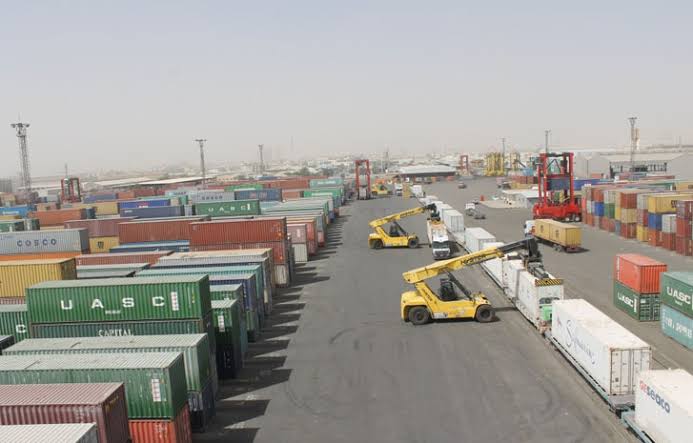
By Adedapo Adesanya
The House of Representatives Ad hoc Committee on the Rehabilitation and Operationalisation of Baro Inland Port has decried the poor quality of work done at the facility.
Mr Idris Wase, a Plateau State lawmaker, expressed the displeasure of the lawmakers at a courtesy visit to Governor Umaru Bago of Niger after an overnight visit to Baro Inland Port in the state.
The lawmaker said that the port project was only “commissioned on paper” by former President Muhammadu Buhari in 2019 despite the huge investments that have gone into the project.
“What we saw is a project that was merely commissioned on paper. It is unfortunate what has happened in the past, but as leaders we must take responsibility to change the narrative,” he said.
The lawmaker described port as a “gateway to Nigeria’s economy, saying that the neglect of the facility represented a wider national problem of infrastructure deficit.
He assured that the committee is determined to revive the port and to ensure its completion for equitable distribution of infrastructure across the country.
The lawmaker said the committee will work with the Nigerian Railway Corporation, and other relevant stakeholders to address outstanding challenges, including dredging and navigation corridors needed to make the port operational.
The Chairman of the committee, Mr Saidu Abdullahi, expressed deep concern over the deplorable state of roads leading to the multi-billion-naira project, describing it as a major impediment to the port’s functionality.
The lawmaker said that in spite of the enormous potential of port to boost trade, create jobs, and open up the economy, the absence of motorable access roads has left the facility largely idle years after its commissioning.
He said that a trip that should ordinarily take half an hour now stretches into four gruelling hours because of the failed portions of the road.
“We are committed to ensuring that this port does not remain a white elephant project. Our work here is to make sure that all the issues are laid bare.
“Government agencies responsible for roads, inland waterways, and transport rise to the challenge. We cannot afford to abandon such a strategic project,” he said.
Mr Bolawale Adetola, the General Manager of Business Development at the National Inland Waterways Authority (NIWA, ) expressed optimism that the port will soon become operational, provided critical challenges such as access roads and dredging are addressed.
He said the involvement of the National Assembly would help mobilise the needed funds, either through direct appropriation or private partnerships, to make the port fully functional.
“Everything that a port needs to work is on ground. The key challenges are the access road and the silted channel, which requires dredging. That is our own part in NIWA.
“Other stakeholders, including the Federal Ministry of Works and the Nigerian Railway Corporation, are also critical to the process. Once all these are in place, Baro Port will be of immense benefit to Nigerians,” he said.
Responding, the governor called for the urgent revival of the port, describing it as a national project that held the key to easing the heavy burden on Nigeria’s road infrastructure.
Mr Bago said that the inland port, conceived by Nigeria’s founding fathers was once central to the Northern Africa Trade Corridor.
According to him, it was strategically linked to the Lagos–Kano–Jibia rail line, which was originally designed to service Baro.
“Since I became governor, we have been working towards the realisation of the Baro Port project. This is not a Niger project, and not even a northern project. It is a Nigerian project,” he said.
General
NNPC, Sahara Group, WAGL Expand Fleet Capacity Beyond 160,000 Cubic Meters
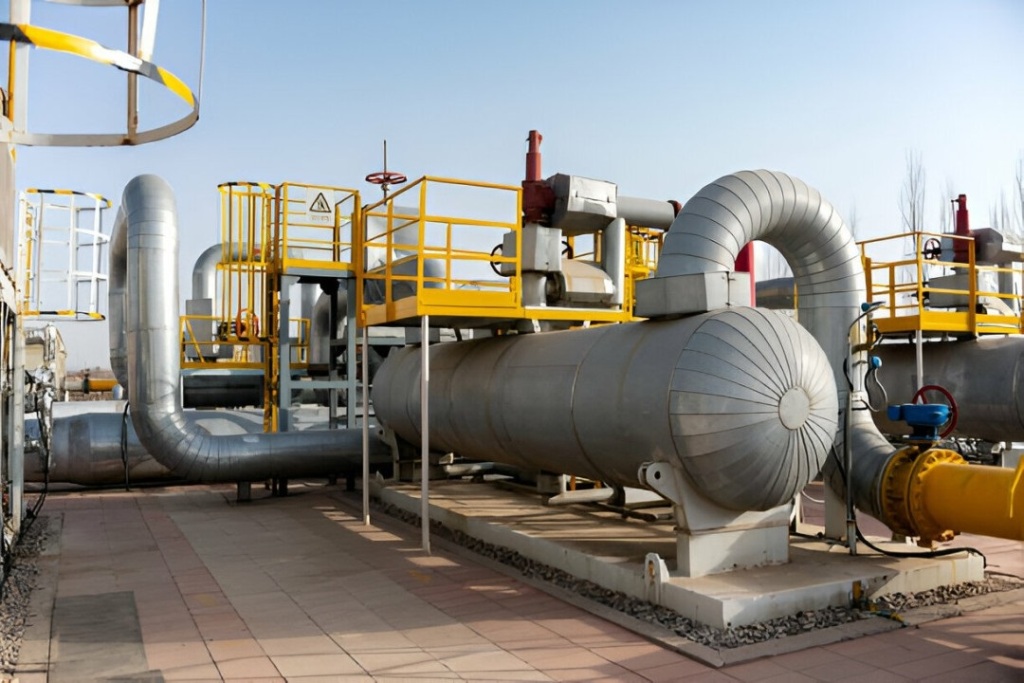
By Adedapo Adesanya
The Nigerian National Petroleum Company (NNPC) Limited, Sahara Group, and WAGL Energy Limited (formerly West African Gas) have announced an expansion of their joint venture fleet capacity, now surpassing 160,000 cubic meters.
In a post released on its official X (formerly Twitter) handle on Monday, NNPC said the fleet expansion strengthens WAGL Energy’s position as one of the leading suppliers of Liquefied Petroleum Gas (LPG) on the continent.
According to NNPC, the move is consistent with its vision of ensuring sustainable and affordable energy solutions for homes, businesses, and industries.
“WAGL Energy Limited, a joint venture between the Nigerian National Petroleum Company (NNPC) Limited and the Sahara Group, now boasts a robust fleet exceeding 160,000 cubic meters. WAGL Energy Limited is driving Africa’s access to reliable and clean energy through sustainable LPG supply, extending its impact across the continent and beyond,” the statement on X said.
WAGL Energy Limited, the JV company between NNPC and Oceanbed (a Sahara Group Company), is driving NNPC’s five-year $1 billion investment plan to accelerate the decade of gas and energy transition agenda over the period.
West African Gas was incorporated in March 2013 as a joint venture company. It was formed by the Nigerian National Petroleum Corporation LNG Ltd, a wholly-owned subsidiary of the Nigerian National Petroleum Corporation (NNPC), and Ocean Bed Trading Ltd, an established oil and gas trading company.
The primary purpose of the company is to serve as a vehicle for the offtake, marketing, and trading of NLNG NGLs under the equity lifting scheme.
This focus allows the company to efficiently manage and market natural gas liquids.
In July 2024, NNPC Limited secured a maintenance agreement with WAGL Energy for a major Nigerian crude oil terminal located in Delta State.
According to the national oil company, Nigerian Pipelines and Storage Company Limited (NPSC), one of its downstream subsidiaries, signed an agreement with WAGL for the provision of Operation and Maintenance (O and M) Services to the Escravos Crude Oil Terminal Facility.
In May 2022, NNPCL and Sahara Group took delivery of two 23,000 cubic meters (CBM) Liquefied Petroleum Gas (LPG) vessels at the Hyundai MIPO Shipyard, a manufacturer of mid-sized carriers, in Ulsan, South Korea.
According to Sahara Group Limited, the new vessels, MT BARUMK and MT SAPET, increased NNPC and Sahara Group’s joint venture (JV) investment to over $300million, as part of moves to attain their $1 billion gas infrastructure commitment by 2026.
The initiatives, the LPG Penetration Framework and LPG Expansion Plan, are geared toward encouraging the use of gas in households, power generation, auto-gas, and industrial applications to attain 5 million metric tonnes of LPG consumption by 2025.
General
RMAFC Commences Review of New Revenue Allocation Formula
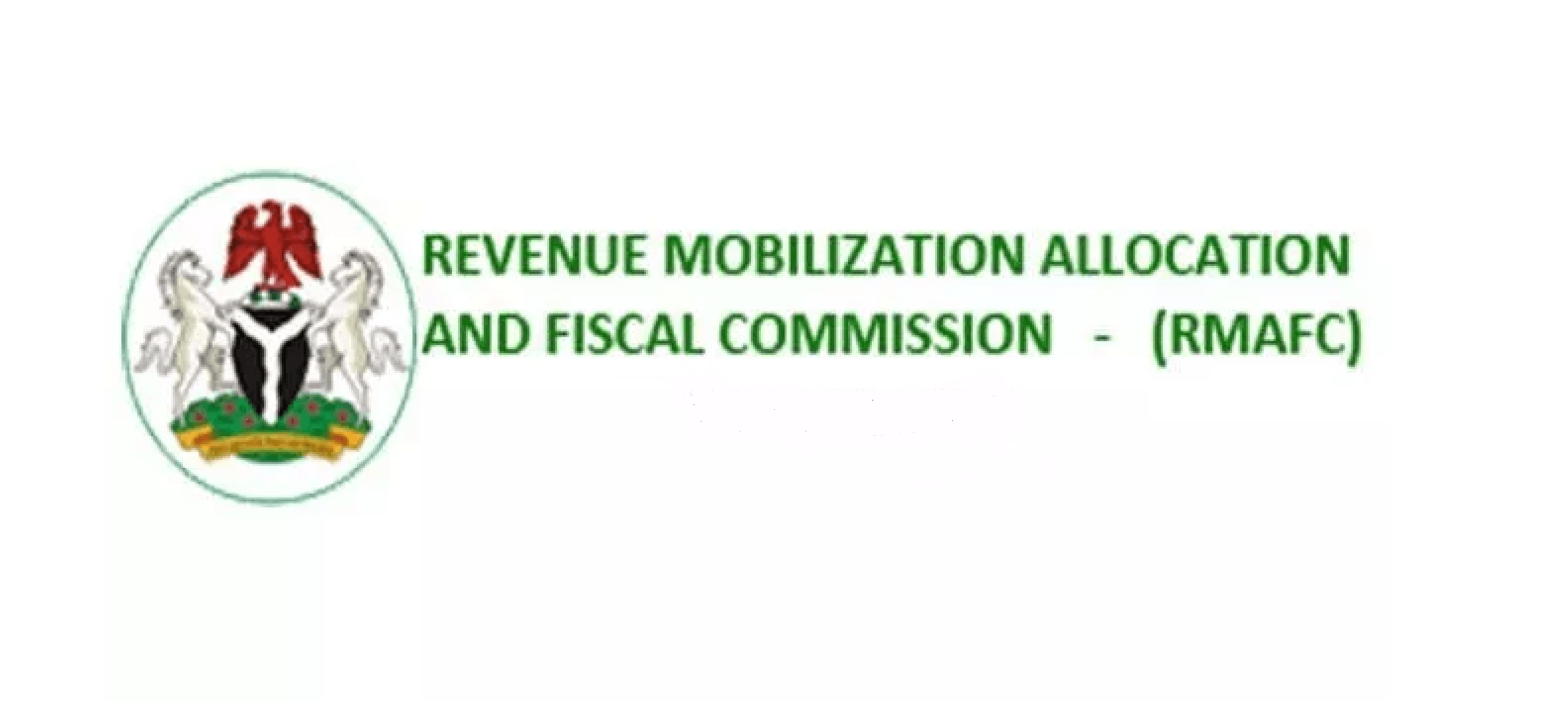
By Adedapo Adesanya
The Revenue Mobilisation Allocation and Fiscal Commission (RMAFC) has commenced the process for review of a new Revenue Allocation Formula (RAF) among the federal, states, and local governments.
The Chairman of the RMAFC, Mr Mohammed Shehu, announced this at a news conference in Abuja on Monday, noting that the review became necessary following current economic realities since the last review in 1992.
According to Mr Shehu, the review aimed to produce a fair, just, and equitable revenue-sharing formula that reflected the current responsibilities, needs, and capacities of the three tiers of governments in line with the constitutional roles.
Under the current revenue allocation formula, the federal government gets a share of 52.6 per cent, 26.7 per cent for the state governments, and 20.6 per cent is allocated to the local governments.
The committee also allotted one per cent each to the Federal Capital Territory, ecological fund, natural resources, and the stabilisation fund under the vertical revenue allocation.
According to him, Paragraph 32 (b), Part I of the Third Schedule of the 1999 Constitution of the Federal Republic of Nigeria (as amended) mandates the RMAFC to “review, from time to time, the revenue allocation formulae and principles in operation to ensure conformity with changing realities”.
“In line with this constitutional responsibility and in response to the evolving socio-economic, political, and fiscal realities of our nation, the commission has resolved to initiate the process of reviewing the revenue allocation formula to reflect emerging socio-economic realities.
“As you may be aware, since that time, Nigeria has undergone profound transformations demographically, economically, and constitutionally,” he said.
According to him, the recent constitutional amendments by the Ninth National Assembly, which devolved certain responsibilities from the Exclusive List to the Concurrent Legislative List, such as generation, transmission, and distribution of electricity; railways and prisons (correctional centres), have placed financial and administrative burdens on sub-national governments.
The situation, he explained, made it essential to reevaluate the structure of fiscal federalism to foster economic growth in individual states, enabling them to become independent from the central government and ensuring equity, responsiveness, and sustainability.
He promised that the commission would carefully assess the needs, service delivery obligations, fiscal performance, and developmental disparities, adding that the review would be inclusive, data-driven, and transparent.
“It will involve broad-based consultations with critical stakeholders, including the presidency, national assembly, state governors, ALGON, the judiciary, MDAS, civil society organisations, traditional rulers, the organised private sector, and development partners.
“The commission is also committed to integrating cutting-edge research, empirical data, and international best practices in its analysis,” he added.
-

 Feature/OPED6 years ago
Feature/OPED6 years agoDavos was Different this year
-
Travel/Tourism9 years ago
Lagos Seals Western Lodge Hotel In Ikorodu
-

 Showbiz3 years ago
Showbiz3 years agoEstranged Lover Releases Videos of Empress Njamah Bathing
-

 Banking7 years ago
Banking7 years agoSort Codes of GTBank Branches in Nigeria
-

 Economy2 years ago
Economy2 years agoSubsidy Removal: CNG at N130 Per Litre Cheaper Than Petrol—IPMAN
-

 Banking2 years ago
Banking2 years agoFirst Bank Announces Planned Downtime
-

 Sports2 years ago
Sports2 years agoHighest Paid Nigerian Footballer – How Much Do Nigerian Footballers Earn
-

 Technology5 years ago
Technology5 years agoHow To Link Your MTN, Airtel, Glo, 9mobile Lines to NIN






